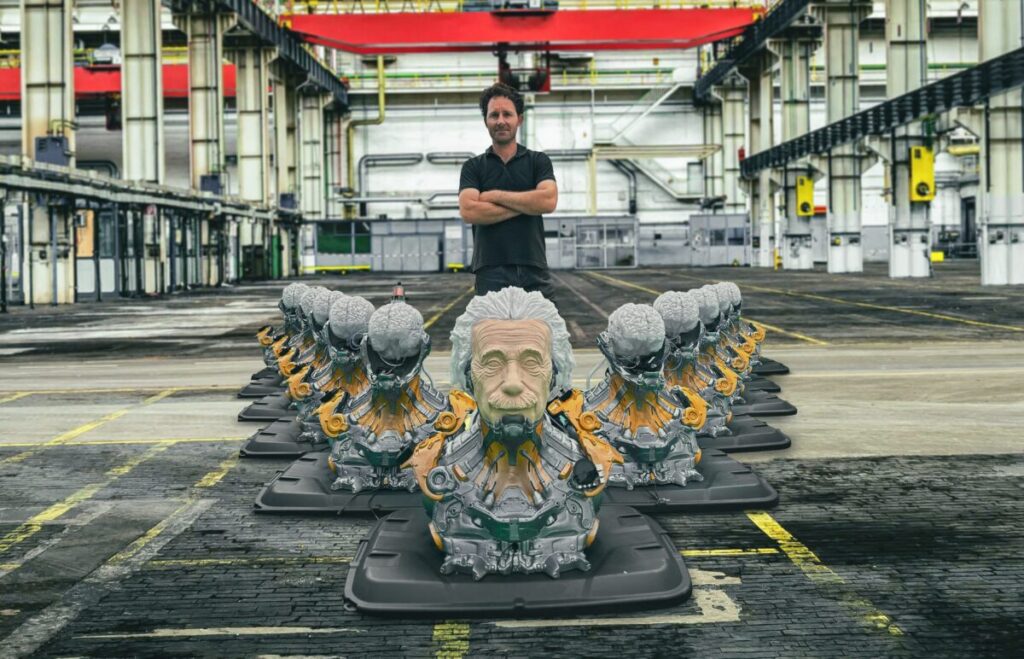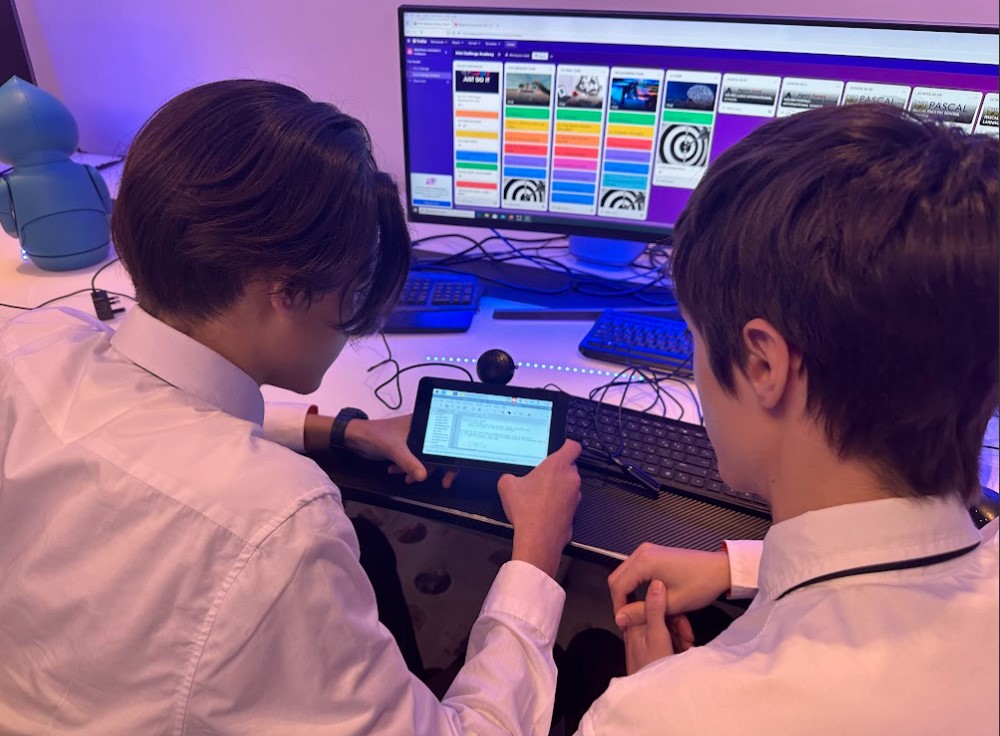In the cosmopolitan city of Larnaca, one of the twenty oldest cities in the world, the efforts of a teacher and his students to integrate artificial intelligence and robotics into education have sparked excitement! Their project Alnstein Junior has become a global phenomenon: it is the first artificial intelligence chatbot capable of bridging the gap between theory and practical application. This could even change the way teaching is done in schools.
The teacher from Pascal School behind the project, Elpidoforos Anastasiou, explains that it is an educational robot with many capabilities. In just five months, it has helped over 600 students from ten schools to contribute to its own development and improvement, thanks to its countless possibilities and STEAM education. Alnstein Junior has actively participated in an innovative process by teaching students Python programming, a versatile and popular programming language, the capabilities of Raspberry Pi (a nano-computer that allows learning programming and electronics), and the intricacies of 3D printing.
"Among the main features of Alnstein Junior is the interaction between students and different languages, such as Greek, English, Russian, and Italian, breaking language barriers. It also offers personalized lessons, quizzes, and real-time feedback, while promoting students' creativity. I would say it is a project for the future of education, proving that by embracing innovation and fostering creativity and collaboration, schools can create learning environments that are not only engaging but also deeply innovative," highlights Professor Anastasiou.
Twelve new robots in Europe
Alnstein Junior has already crossed Cypriot borders to inspire many educators and students throughout Europe. In a short period of time, it has led to the creation of twelve additional robots in Globeducate schools across Europe. "Each school was encouraged to design its own unique AI character, integrating history, culture, and educational priorities. This approach not only personalizes the educational experience but also promotes intercultural collaboration among schools. Students have been engaged in writing essays about the characters they have chosen. They have digitized these stories and programmed them into the artificial intelligence systems of their robots," explains Professor Anastasiou. He then emphasizes that the new school year will be used by all students, not only in Pascal, but also in schools in Milan, Rome, Paris, London, Majorca, and Florence.
The project's influence has extended to the professional development of teachers who participated in the Alnstein Junior program. They received training on how to integrate these advanced technologies into their teaching practices, thereby raising the overall level of education in all participating schools and ensuring the long-term sustainability of the project.

Expanding the boundaries of educational technology
Recognizing the benefits of combining technology with schools' expertise in different parts of the world, they have started making room for similar projects in their programs. "Integrating artificial intelligence and 3D printing into school curricula has become a model of how technology can enhance education. This makes complex subjects more accessible and appealing to students. Indeed, the success of the project has led to the creation of a network of schools collaborating on artificial intelligence and robotics initiatives, a global community determined to push the boundaries of educational technology. The project's influence has also extended to political discussions, with governments and educational institutions seeking to replicate its success in their own regions," notes Professor Anastasiou.
Challenges and Perspectives
At a global level, there is a concern that the spread of artificial intelligence tools threatens the quality of education. "An objective analysis of AI capabilities reveals that as humanity, we could be on the brink of the greatest positive reform in education", says Dr. Savvas Chatzichristofis, Professor of Artificial Intelligence at Neapolis University Paphos and Vice-Rector for Research and Innovation. "Appropriate AI tools are being developed daily with the aim of functioning as a personal student advisor. These systems analyze students' performance data and adapt educational content and strategies to meet individual needs."
With their ability to be scaled and serve a large number of students simultaneously, AI-based education systems have the potential to revolutionize education and make learning more accessible and effective for all. This individualized approach enhances student engagement and motivation, and improves learning. However, educators must have the necessary knowledge and skills to navigate these technologies and ensure their responsible use.
As Dr. Chatzichristofis points out, "UNESCO guidelines are heading in the right direction, and it is clear that we will soon be able to turn what seems to be a threat today into an opportunity. The only real threat lies in the fact that not all countries have the same reflexes. I fear that some countries, out of fear of change, are depriving their students of these valuable tools, leading at least one generation of citizens towards a new form of technological illiteracy."
And to conclude: "As AI continues to transform our society, policymakers, industry stakeholders, and society as a whole must collaborate closely to navigate the complex intricacies of AI governance and harness its potential for the benefit of humanity. The EU's AI Act marks an important milestone in shaping the future of AI within the EU. It also influences global AI regulation."

